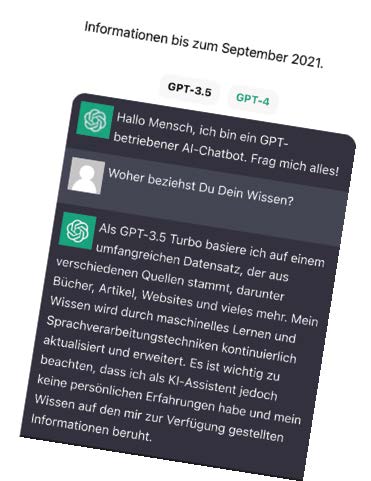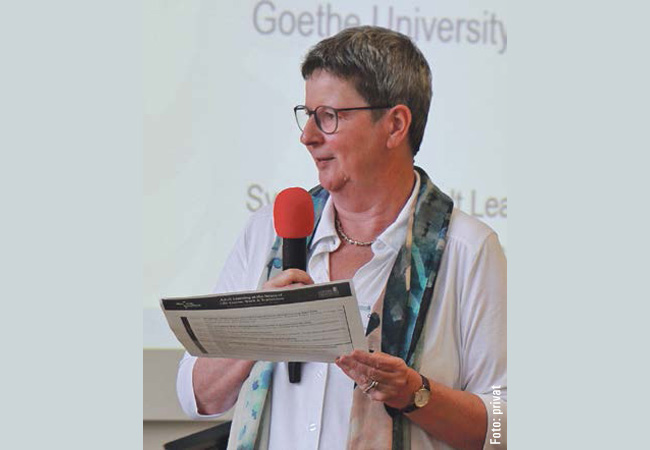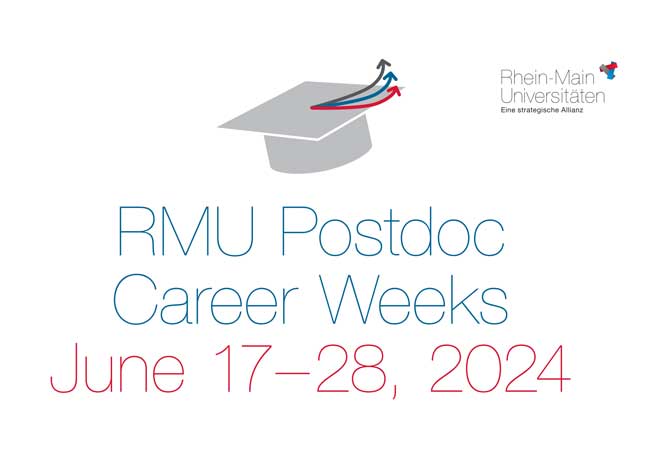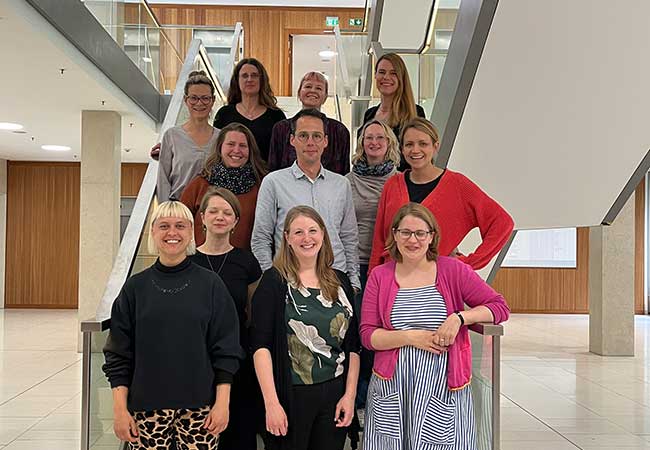Nora Hoffmann, Leiterin des Schreibzentrums, über die bundesweite Studierendenbefragung »Die Zukunft des akademischen Schreibens mit KI gestalten«

UniReport: Frau Hoffmann, die Ergebnisse der Studierendenbefragung liegen jetzt vor. ChatGPT & Co sind eindeutig bei den heutigen Studierenden angekommen, 66 Prozent der Befragten haben angegeben, generative KI-Schreibtools grundsätzlich genutzt zu haben. Hat Sie das Ergebnis überrascht?
Nora Hoffmann: Tatsächlich waren wir unsicher, wie intensiv Studierende generative KI bereits nutzen, da sie das aus Angst vor negativen Konsequenzen nicht unbedingt offen kommunizieren, insbesondere gegenüber Dozierenden. Im geschützten Rahmen von Schreibberatungen oder Workshops am Schreibzentrum dagegen wurde schon im Vorfeld der Umfrage deutlich, dass KI Eingang ins studentische Schreiben gefunden hat. Insofern war das Ergebnis nicht ganz unerwartet, aber die sehr große Anzahl und Breite studentischer Nutzer*innen fand ich dennoch erstaunlich, da das Thema davor nicht bei allen Studierendengruppen gleichermaßen präsent schien. Laut Umfrageergebnissen nutzen Studierende aller Fachrichtungen und Fachsemester KI bereits für zahlreiche Teilprozesse des wissenschaftlichen Schreibens, ein Viertel davon mindestens einmal pro Woche.
Abgefragt wurde bei den Teilnehmenden der Studie die Selbsteinschätzung von Schreibkompetenz. Welche Zusammenhänge zur Nutzung von KI-Tools konnten ermittelt werden?
Über viele Fragen hinweg sind durchweg leichte Zusammenhänge zu beobachten: Studierende, die ihre Schreibkompetenzen höher einschätzten, nutzten KI etwas seltener und ließen vor allem weniger vollständige Texte durch KI generieren. Zudem setzen sie sie für ein geringeres Spektrum an Aufgaben ein. In den Freitexten finden sich auch wiederholt Aussagen, dass Studierenden der eigene, individuelle Stil beim Schreiben wichtig ist, oder auch, dass sie beim Schreiben lernen und Gedanken entwickeln, und deshalb ihre Texte nicht von KI generieren lassen wollen.

Lassen sich Aussagen darüber treffen, wie Studierende selbst die Qualität KI-generierter Texte einschätzen? Wo sehen sie mögliche Mängel, wann würden sie nicht zur KI greifen?
Laut unseren Daten schätzen Studierende die sprachliche Qualität der Outputs hoch ein, sodass die Nutzung zur sprachlichen Verbesserung eigener Texte weitverbreitet ist. Was die inhaltliche Qualität betrifft, nimmt etwa die Hälfte der Studierenden wahr, dass KI inhaltlich falsche Aussagen produziert und Quellen erfindet. Die größten Nachteile sehen sie in der fehlenden Transparenz und mangelnden Präzision. Diesem Bewusstsein steht allerdings entgegen, dass die häufigste Nutzung darin besteht, sich Literatur zusammenfassen zu lassen. Eine mögliche Erklärung dieses Widerspruchs geben die Freitexte: Darin erläutern manche Studierende, dass sie diese Zusammenfassungen nur als ersten Ausgangspunkt zur Orientierung nutzen und die Texte anschließend selbst lesen, sich also nicht ausschließlich auf KI verlassen.
Was lässt sich über jene Studierenden sagen, die bislang noch nicht KI verwenden?
Die meisten dieser Studierenden treffen anscheinend bewusst eine Entscheidung gegen KI, denn nur wenige geben an, die Tools nicht zu kennen oder bedienen zu können. Die Gründe für die Ablehnung sind unterschiedlich: Viele sehen keinen Nutzen im KI-Einsatz, etwa da sie den Mehrwert des kritischen Denkens bei der eigenständigen Textentwicklung schätzen. Einige haben auch Bedenken, die Tools zu nutzen, zumal zum Zeitpunkt der Umfrage an den meisten Hochschulen (auch an der GU) noch keine klaren Regelungen hierzu vorlagen. Ein weiterer Teil war unsicher, wie die Tools in den Schreibprozess integriert werden können. Insofern dürfte sich die Bereitschaft Studierender, KI zu nutzen, künftig weiter erhöhen, wenn bisherige Hinderungsgründe durch klare Regelungen und Informationsangebote der Hochschulen wegfallen.
Wo sehen Sie noch Forschungsbedarf, was sollte speziell die Schreibforschung noch genauer untersuchen (lassen)?
Für die schreibdidaktische Community bildet die Vermittlung einer reflektierten und gezielten Nutzung von KI-Tools im Schreibprozess einen (neuen) Teil ihrer Aufgabe der Schreibkompetenzvermittlung, da KI-Einsatz vermutlich künftig (bzw. bereits jetzt) sowohl zum beruflichen als auch zum akademischen Schreiben dazugehören wird. Wie aber genau die Auswirkungen von KI auf Textproduktionsprozesse und -produkte, Schreibkompetenz und Lesegewohnheiten sein werden, welche Unterstützungsmaßnahmen entsprechend benötigt werden und auf welche Weise sie wirken, lässt sich aktuell noch nicht absehen, sodass ich hier Forschungsbedarf sehe. Unsere Umfrage erfasste im ersten Schritt, auf welche Weise und mit welchen Einstellungen Studierende KI nutzten, bevor klare Regelungen, Informationen oder breite didaktische Unterstützung vorlagen. Damit ist der aktuelle Ausgangszustand und Förderbedarf greifbarer, wobei viele Einzelfragen noch offen sind, z.B.: Hemmt die gemeinsame Ideenentwicklung mit KI die eigene Kreativität oder regt sie diese im Gegenteil an? Entwickelt man sich sprachlich durch KI-Nutzung und die Übernahme generierter Formulierungen in das eigene Repertoire weiter oder verlieren sich eigene Fähigkeiten? Ist es ohne eigene Schreiberfahrung möglich, KI-generierte Texte kritisch zu bewerten und zu überarbeiten? Zum einen sollte die Forschung solchen Fragen nachgehen. Zum anderen besteht der nächste Schritt in der Schreibdidaktik darin, auf den aktuell vorhandenen Kenntnissen aufbauende Unterstützungsangebote (weiter) zu entwickeln und deren Effekte zu beforschen. Aufschlussreich wären zudem Studien zur KI-Nutzung durch Forschende, um (ggf. fachspezifische) professionelle Nutzungsweisen herauszuarbeiten, die man Studierenden vermitteln könnte.
Welche Anregungen und Schlüsse ziehen Sie als Schreibzentrum aus den Ergebnissen?
Das Schreibzentrum hat zahlreiche Informations- und Unterstützungsangebote zum Schreiben mit KI für Studierende und Lehrende entwickelt, siehe tinygu.de/ki-schreiben. Die Umfrageergebnisse nehmen einerseits etwas den Druck, das Angebot zu KI darüber hinaus stark auszuweiten, da sie zeigen, dass Studierende KI größtenteils mit ansatzweise kritischem Bewusstsein für deren Stärken, Schwächen und Gefahren nutzen. Andererseits besteht durchaus Luft nach oben: Der kritische Umgang ist noch nicht in vollumfänglichem Maße und zudem längst nicht bei allen in der Breite vorhanden. So macht die Umfrage auch Minderheiten sichtbar, die entweder KI zum Generieren vollständiger Text einsetzen oder aber die Nutzung kategorisch ablehnen. Zudem äußert die Mehrheit der Befragten hohen Bedarf nach Information und klaren Regelungen. Insofern ziehen wir als Schreibzentrum aus den Ergebnissen den Auftrag, weiterhin die technischen Entwicklungen zu verfolgen, uns in die regen schreibdidaktischen Diskurse einzubringen, Studierenden wie Lehrenden Unterstützung bei der Einbindung von KI ins akademische Schreiben anzubieten und didaktische Maßnahmen hierzu weiterzuentwickeln und zu beforschen.
Fragen: Dirk Frank
»Die Zukunft des akademischen Schreibens mit KI gestalten«
Zielsetzung:
Die bundesweite Studierendenbefragung zielte darauf, zu erfassen, auf welche Weise, aus welchen Gründen und mit welchen Haltungen Studierende generative KI-Schreibtools zum akademischen Schreiben einsetzen und inwiefern Schreibkompetenz Auswirkungen auf die KI-Nutzung hat. Die Ergebnisse sollen Hochschulen Anhaltspunkte geben, um die Anpassung von Lehre, Studium, Prüfungsformen und Unterstützungsangeboten zum Umgang mit KI an der studentischen Nutzungsrealität auszurichten.
Datenerhebung:
Die Online-Befragung wurde über Schreibdidaktiker*innen deutschlandweit an Hochschulen verbreitet und war vom 13.7. bis zum 20.8.2023 geöffnet. Zu diesem Zeitpunkt war ChatGPT ein halbes Jahr allgemein bekannt und an Hochschulen bestanden vielfach noch keine klaren Stellungnahmen, Vorgehensweisen und Regelungen zum Umgang damit. Beim Verfassen schriftlicher Studienarbeiten konnten Studierende daher die KI in einer rechtlichen Grauzone ausprobieren und individuelle Nutzungsweisen entwickeln.
Stichprobe:
Nach Datenbereinigung verblieben 3.997 gültige Fragebögen. 43,5 Prozent der Befragten studierten an der Goethe-Universität.
Ergebnisse:
• Die meisten Studierenden nutzen generative KI-Schreibtools bereits regelmäßig; einige nutzen sie aber bisher nicht. Viele Studierende setzen generative KI-Schreibtools reflektiert und verantwortungsbewusst ein und überarbeiten KI-Texte; einige jedoch lassen vollständige KI-Texte generieren.
• Studierende sind sich der inhaltlichen Unzuverlässigkeit von KI-Texten mehrheitlich bewusst, während das Bewusstsein für Datenschutz, Urheberrecht und ethische Aspekte geringer ist.
• Die meisten Studierenden fühlen sich sicher im Umgang mit generativen KI-Schreibtools. Einige wissen allerdings nicht, wie sie sie sinnvoll in den Schreibprozess einbauen können.
• Studierende äußern großen Bedarf nach klaren Regeln und Informationen zum Umgang mit generativen KI-Schreibtools.
• Studierende mit höherer selbsteingeschätzter Schreibkompetenz nutzen generative KI-Schreibtools seltener und stimmen den Nutzungsgründen weniger zu.
Erste Auswertungen und Details zur Studie sind hier abrufbar.












